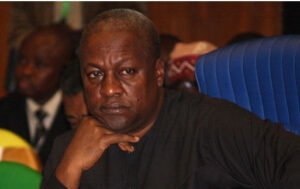
The writer
The first record of organised taxation comes from Egypt around 3000 B.C. This is syndicated in several historical sources, including the bible, when it is used as a tool to burden the children of Israel for an empire which they had no share in (Exodus 1:11).
In a sharp contrast to these events in the Old Testament, Jesus Christ as a King with understanding of Empire building, had to go at lengths to perform a miracle out of the mouth of a catfish to settle his taxes due to the state, which he saw himself and disciples as part of (Matthew 17:24-27).
With these historical accounts in mind, taxes devised as a national aspiration towards development for a collective good is a necessary and obligatory demand of each citizen because even the Christ did not exempt himself from his taxes.
The idea of sacrificing one’s blood, sweat and toil without direct benefit is what often resonates with a burdened regime as was the case in Egypt. If my tax is my sacrifice, then the rewards of my sacrifice into empire building must directly reflect in my well-being and survivability in the state. Anything short of this will result in cries and tears that may just reach the heavens.
Ghanaian strategy
As a country, the polarized debate on E-Levy, according to this writer, can be avoided if critical steps are taken to inform the taxpayer on the need to generate revenue this way as a collective aspiration of Ghana. What will soften the expected sacrifices of the Ghanaian, I believe, is to explain in vivid terms what the intended benefits are.
Plainly laid out communication in simple terms holds key to addressing the disgruntled agitations of many because as a revenue generation strategy, taxes are as old as Egypt. Sooner than later, Parliament will sit to argue out the details of the E-Levy.
With our kind of democracy, a majority vote will mean an adoption or otherwise of this tool available to us. Either way an introduction of any kind of tax regime must begin with a lot of education and an opportunity for all stakeholders to engage to question the aspiratory necessities of the authority at play.
This, I must say, the Government must be commended greatly for its efforts in town hall forums and media engagements to sensitise the public. If this education is lacking in scope, then more resources must be engaged in this direction. After all, Peter’s apprehension as recounted earlier in the Biblical story was sharply diffused by information from Christ as to the necessity of paying tax thereby the miracle of money in the mouth of a fish to pay their taxes.
Accounting for our taxes
Give unto Ghana what is agreed to belong to Ghana. If Ghana is to go beyond aid, then Ghana cannot be influenced by taxes paid for by citizens of another country in our cyclical borrowing transactions.
What is required of us as a country is to establish clearly, by majority agreement, what our taxes are directed into because taxation has always been synonymous with development and a hallmark of civilization. The E-Levy, therefore, must be an integral component of our social contract between Government and how the Ghanaian economy is run.
How the money raised is utilised can be the basis of legitimisation for this government. And thus, it offers a very good opportunity for the Ghanaian to hold this government accountable at the end of its tenure. This is because, unlike all the existing forms of taxes, this one in particular will have a broader compliance system due to the ease of technology and reach home to many more Ghanaians.
A feature which has constantly been absent in most of the tax systems in the country. Therefore, the efficient administration of E-Levy has the propensity of expanding our tax base and resulting in more revenue generated. This is about the surest way to take Ghana truly beyond aid.
Why E-Levy payment has become a must?
Records from parliament points to Government’s total revenue target for 2022 standing at GHC80.3billion as against total expenditure of GHC145.4billion, which is an indication of a shortfall of about GHC65.1billion.
Government needs to device innovative ways to find these monies internally instead of embarking on the usual borrowing spree with its associated conditionality. Since past experiences reveal that, these conditionalities have negatively affected our collective resolve to make Ghana a safe haven for the entire citizenry.
In view of that, it has become imperative for government to bring every well-meaning Ghanaian aboard the resource mobilisation van to be able to carry out its targeted lives transforming projects and programs.
It is instructive to note that out of the GHC80.3billion revenue targets, GHC35.8billion will go to workers’ compensations, while GHC37.4 billion will also go into interest payments. Going by that, government will be left with only GHC7.1billion to carry out all its programs.
Not long ago, Government announced an expenditure cut of 20% which translates to about GHC29billion. In spite of this huge cut in government expenditures, it still remains mandatory for government to raise about GHC36.1billion extra to execute its planned programmes and activities.
Currently, figures from the Ghana Revenue Authority (GRA) show that, out of the over 14 million taxable populations, only 8% are within the tax payment bracket. Majority of the citizenry who find themselves in the artisan’s net do not pay taxes. So far, Government has succeeded in putting the country on the sound footing of digitization to ensure smooth contributions of all and sundry into the tax basket.
There is every indication that majority of the good people of Ghana have little or no idea about where we have gotten to as a country as regards our financial strength. The earlier the citizenry gets conscientised about the need for everyone to put a hand on deck to allow for our getting out of the woods in order to avoid a possible fall into a ditch, the better.







